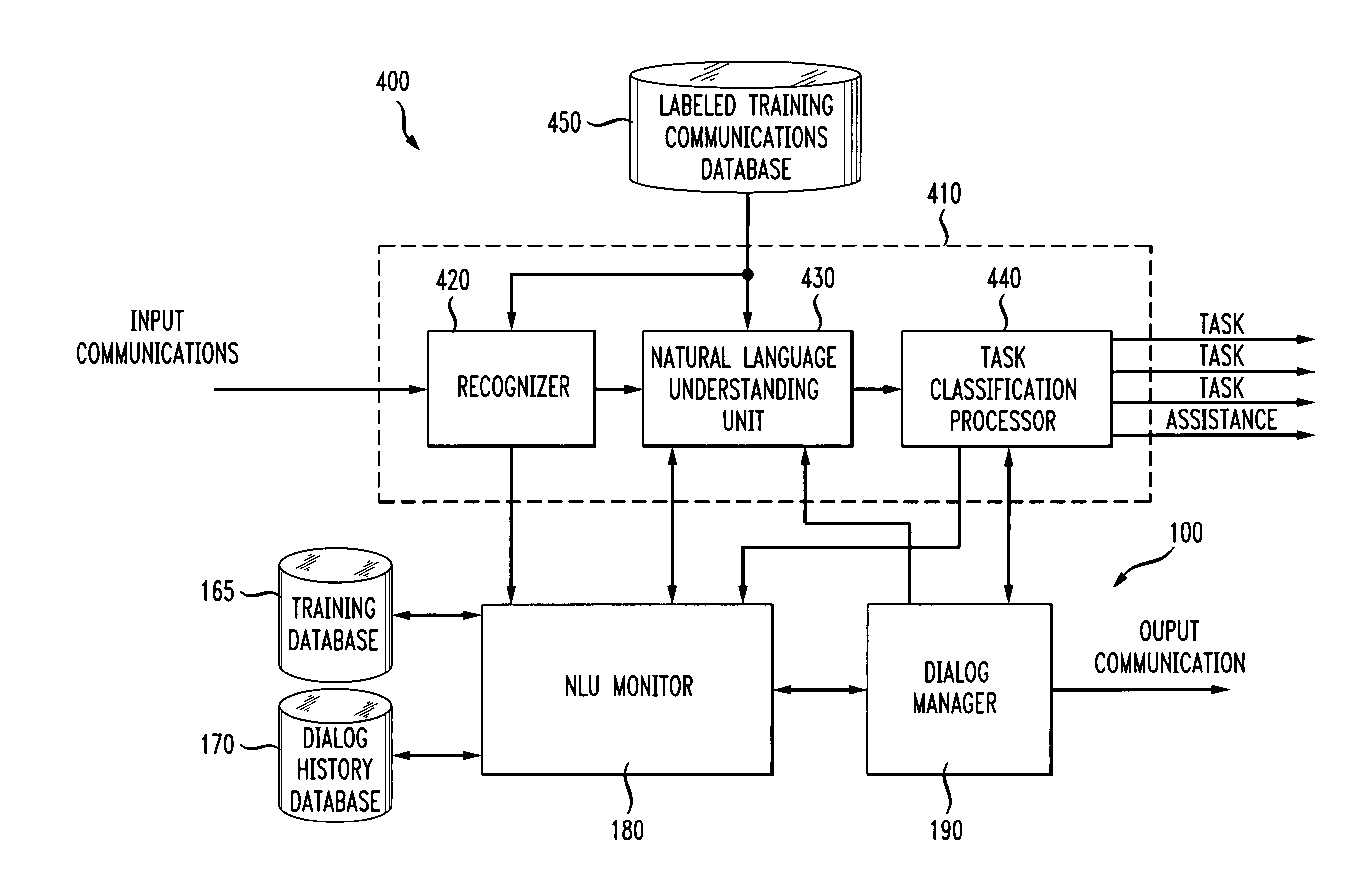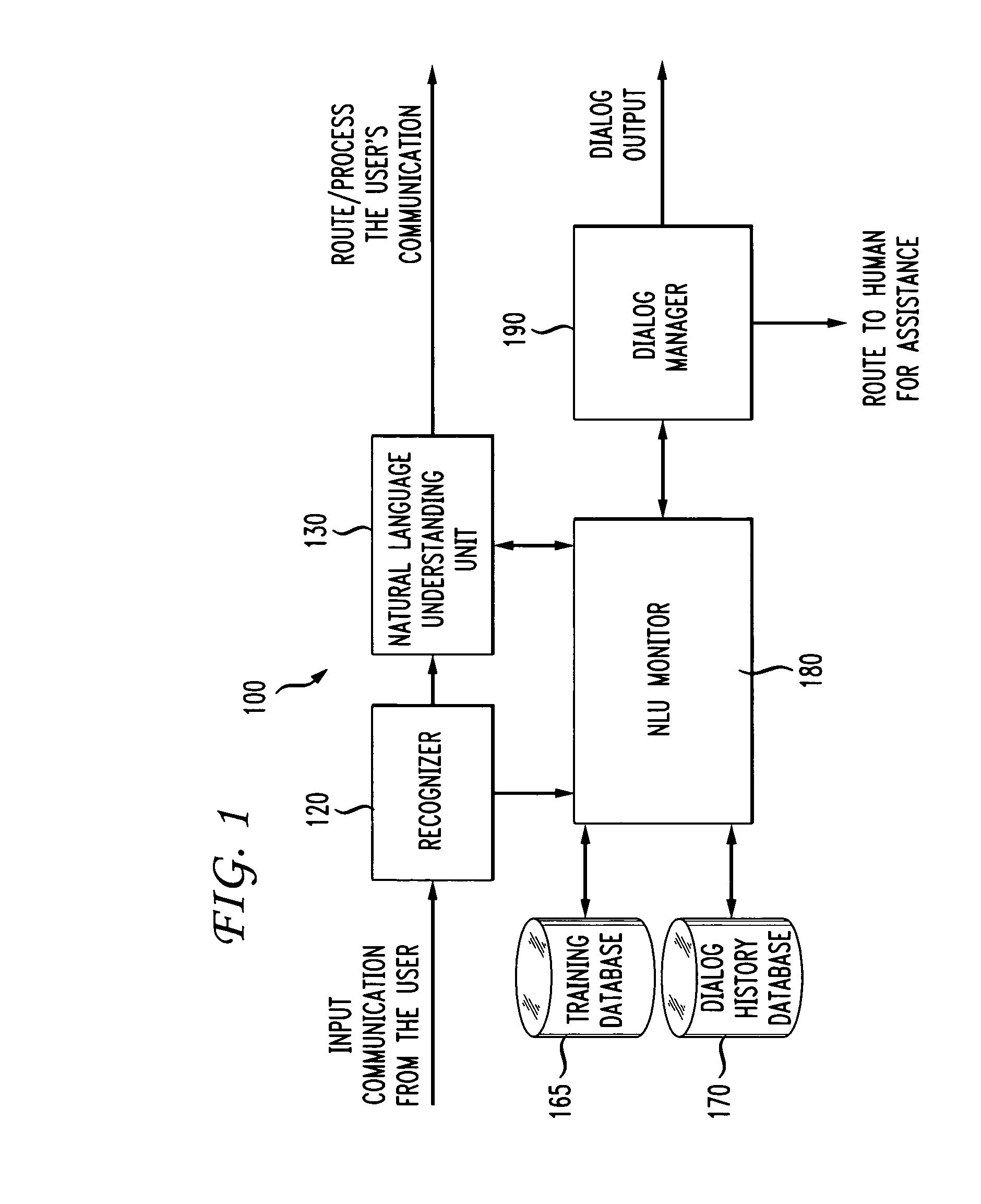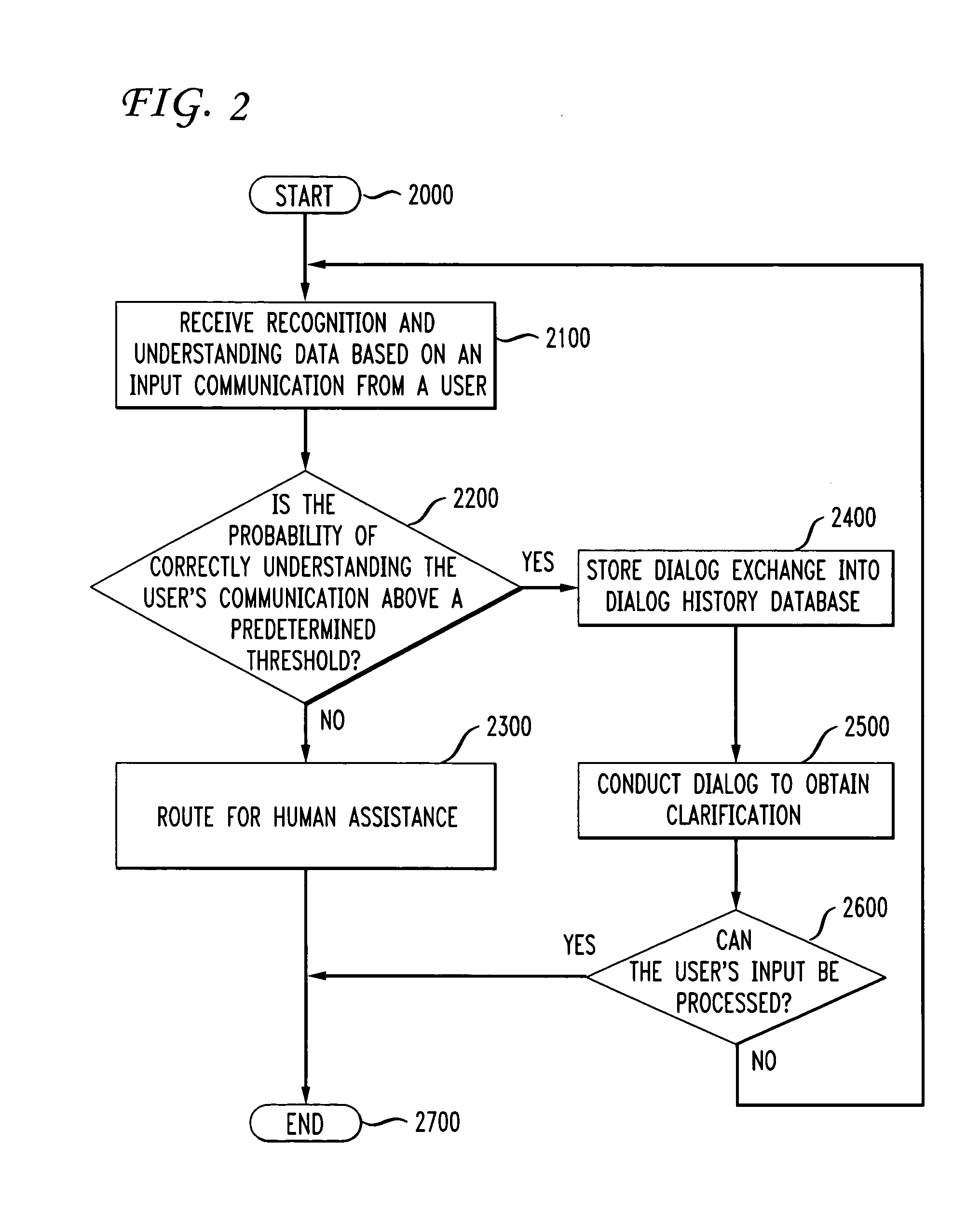Method and system for predicting understanding errors in a task classification system
a task classification and task technology, applied in the field of automatic systems for communication recognition and understanding, can solve the problems of saving millions of dollars in labor costs and the problem of large number of language understanding errors in systems that support conversational natural language, and achieve the effect of improving the chances of conducting a successful dialog with the user
- Summary
- Abstract
- Description
- Claims
- Application Information
AI Technical Summary
Benefits of technology
Problems solved by technology
Method used
Image
Examples
Embodiment Construction
[0015]Automated dialog systems promise efficient and natural access to a large variety of information sources and services from any communication device, such as telephones, cellular or mobile phones, computers, videophones, etc. Several hundred systems that support system-initiative dialogs are currently being field-tested and deployed. However, systems that support mixed-initiative, conversational, natural language interaction are still subject to a large number of language understanding errors, which have a large impact on the system's performance.
[0016]This invention concerns monitoring an automated dialog system for the automatic recognition of language understanding errors. The ability to recognize and predict language understanding errors will endow an automated system with the ability to correct some errors automatically or to interact with users to repair them.
[0017]As an example of the benefit of error detection, contrast the exemplary dialogs below between human users and...
PUM
 Login to View More
Login to View More Abstract
Description
Claims
Application Information
 Login to View More
Login to View More - R&D
- Intellectual Property
- Life Sciences
- Materials
- Tech Scout
- Unparalleled Data Quality
- Higher Quality Content
- 60% Fewer Hallucinations
Browse by: Latest US Patents, China's latest patents, Technical Efficacy Thesaurus, Application Domain, Technology Topic, Popular Technical Reports.
© 2025 PatSnap. All rights reserved.Legal|Privacy policy|Modern Slavery Act Transparency Statement|Sitemap|About US| Contact US: help@patsnap.com



